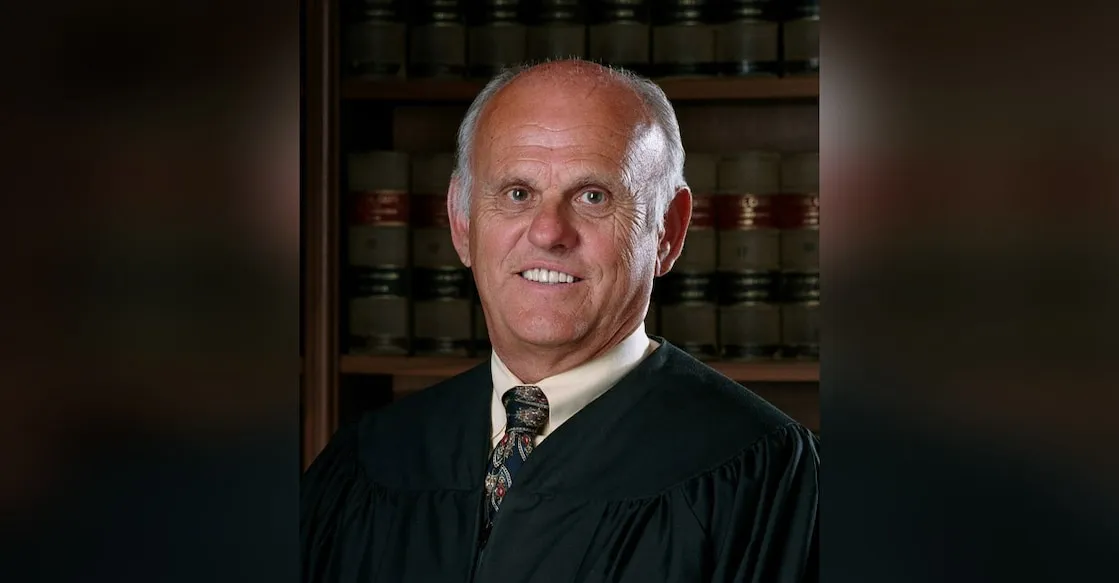Judge John Coughenour’s Bold Ruling: A Major Setback for Trump’s Citizenship Order
In a landmark decision that has sent shockwaves through the legal and immigration landscape, Federal Judge John Coughenour of Seattle has delivered a decisive blow to former President Donald Trump’s controversial executive order targeting birthright citizenship. The ruling, which came after intense legal scrutiny, represents a critical moment in the ongoing national debate about immigration and constitutional rights.
The case centers on an executive order that would have fundamentally altered the interpretation of citizenship rights for children born to unauthorized immigrants in the United States. Judge Coughenour’s temporary restraining order effectively halts the implementation of this potentially transformative policy, citing significant constitutional concerns.
What makes this ruling particularly noteworthy is the judge’s unequivocal stance on the order’s legality. During the hearing, Coughenour, a Reagan-era appointee, expressed his astonishment, stating he had never encountered a case so clearly unconstitutional in his four decades on the bench.
The legal challenge was brought forth by a coalition of states, including Oregon, Arizona, Illinois, and Washington, who argued that the executive order would have devastating consequences for millions of children born to immigrant parents. These states positioned themselves as defenders of constitutional principles and immigrant rights.
Key aspects of the ruling include:
- Blocking federal agencies from implementing the citizenship order
- Preserving the 14th Amendment’s guarantee of birthright citizenship
- Preventing potential deportation of children born to undocumented immigrants
- Maintaining eligibility for federal assistance programs
Washington State Attorney General Nick Brown celebrated the decision, calling it a “critical first step in challenging an unconstitutional and un-American executive order.” Similarly, California Attorney General Rob Bonta expressed confidence that other courts would follow Coughenour’s legal reasoning.
The executive order, initially signed by Trump on his first day in office, represented an aggressive approach to immigration policy. If enacted, it would have dramatically altered the status of children born to unauthorized immigrants, potentially making them deportable and ineligible for crucial support systems.
Legally, the ruling hinges on the 14th Amendment, which explicitly guarantees citizenship to all persons born in the United States. Judge Coughenour’s decision underscores the amendment’s enduring importance in protecting fundamental rights, regardless of parental immigration status.
Trump’s administration has already indicated its intention to appeal the decision, suggesting that this legal battle is far from over. The case is expected to attract significant national attention and could potentially reach the Supreme Court, with implications for future immigration policies.
The ruling has broader implications beyond this specific order. It represents a growing judicial resistance to federal immigration policies perceived as discriminatory or overreaching. By blocking the executive order, Judge Coughenour has effectively defended a fundamental principle of American citizenship.
Advocacy groups and legal experts have praised the decision as a victory for immigrant rights and constitutional principles. The ruling demonstrates the critical role of the judicial system in maintaining checks and balances, particularly when executive actions appear to conflict with constitutional guarantees.
As the legal proceedings continue, this case will undoubtedly remain a focal point in the ongoing national conversation about immigration, citizenship, and the interpretation of constitutional rights in the United States.
Conclusion: Judge John Coughenour’s ruling is more than a legal technicality—it is a powerful reaffirmation of the constitutional principles that define American citizenship, offering a robust defense of rights for children born in the United States, regardless of their parents’ immigration status.
Disclaimer: This article is based on reported events and legal interpretations as of the specified date.






Leave a Comment